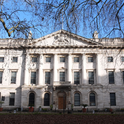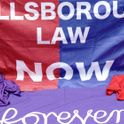It has been widely noted that aside from its many tactical and leadership errors the “No” campaign struggled to find much meaning in the idea of Britishness. Although Britain continues to exist (just!) as a state and a set of institutions—the armed forces, the BBC and so on—fewer and fewer people regard it as a national home, it has become functional rather than emotional. For many years now the Scots and Welsh have placed their Scottish and Welsh identities before their British one, and the English have in recent years followed suit.
In the Scottish referendum the biggest supporters of independence were 25-39 year olds (56/44 for “Yes”) and the biggest opponents were men and women over 65 (64/36 for “No”). For the latter group growing up in the 1950s and 1960s, Britishness had been their national identity, sitting alongside or intertwined with Scottishness.
But that is now true for a dwindling number of older people in Britain. And despite the brief revival of a benign idea of Britain as painted by Danny Boyle in the 2012 Olympic opening ceremony the idea of Britishness as a primary source of allegiance is unlikely to be revived.
The more interesting question is how much did the SNP and Yes campaign benefit from this emptying of Britishness and flourishing of Scottishness in recent years? The argument is complicated by the fact that though national feeling remains deeply rooted in modern life, even in rich and liberal countries like England and Scotland, modern liberalism is unhappy with the language of nationalism. It does not like its supposed narrowness and moral particularism, hence the SNP’s repudiation of its Hugh MacDiarmid ethnic nationalist past and its stress on an open, civic national story.
This repudiation allowed the SNP to attract Scotland’s centre-left intelligentsia which in the main thinks of itself as anti-national or post-national. “I’m not a nationalist,” said Tom Devine, Scotland’s leading historian and backer of the Yes cause. What he means is that he is not a chauvinistic nationalist. For, of course, standing behind the arguments about social justice and more appropriate forms of self-government there is an idea of “the Scottish people” and their distinct history, language and institutions—perhaps even characteristics. Notions of being “better” than the English have been largely suppressed by modern, liberal nationalism but if the Scots were not a distinct people there would be no case for creating an independent state, which is why there is no case for creating a distinct state of Manchester.
And being a distinct people with your own state means that you are able to put the interests of your fellow citizens first, if they should conflict with others. That is what the argument for independence is at root about: it is saying that our interests as Scots diverge in significant respects from the English and we want to make our own decisions about everything from tax levels to foreign policy. Or sometimes it is expressed in the language of values, we want our governance arrangements to more accurately reflect what we think are distinct Scottish values. (Incidentally, this is what Ukip says about the EU. In immigration policy, say, Ukip complains that the EU does not allow British governments to put the interests of British citizens first. But according to the typical SNP progressive Ukip is a racist party.)
As a small nation living in the shadow of a larger one, Scottish national identity has always been more sharply defined and expressed than Englishness. But for now it seems that sense of Scottishness can be satisfied within a more autonomous country still within a looser framework of Britain.
What about the English? Because Englishness for much of the 19th and 20th century was submerged into Britishness the English remain semi-literate in the language of modern national identity. And, like their Scottish counterparts but even more so, English liberals and progressives remain uneasy about national feelings that they associate with the domination of 19th colonialism and irrational group-think.
But the Scots, by rearranging the union around their own reinvigorated national identity, present an opportunity for the English to learn to speak “national” normally and robustly, like most Scots do themselves. And the English appear to be warming to the idea. They recently caught up with the Scots in placing English identity before British, and the post-referendum constitutional change is bound to create an English political community for the first time in more than 300 years. England released from Britain, at least partly, could find a new post-post-imperial resting place and a comfort with just being itself.
Some people fear that a more overt and confident English identity could be disturbing for England’s ethnic minorities, who along with the pensioners are the other significant group to still find meaning in Britishness. But that need not be the case. The English/ethnic v British/civic dualism is increasingly blurred and minorities are starting to identify more with Englishness. The withering of the memory of England as a colonial power and the creation of an English parliament will only speed that process . The example of Scotland’s (admittedly small) South Asian minority, mainly in Glasgow, shows that it is possible for newcomers to identify with an essentially ethnic Scottish identity.
The whole point about Britishness is that is has been a fuzzy and loose identity that has allowed different groups of people to occupy it in their own way. That historic role has not completely disappeared but perhaps it is now more appropriate to see it as a more formal identity, an identity for state occasions and facing the outside world with the four nations coming together more consciously—in the monarchy, the BBC, the armed forces, foreign affairs, Team GB and so on—where it is in their interests to do so. Englishness will at the same time become rather more like Scottishness is to most Scots; their real national identity combining both civic/political and ethnic aspects and grounded in a common lived experience of sharing resources and spaces with fellow citizens.












